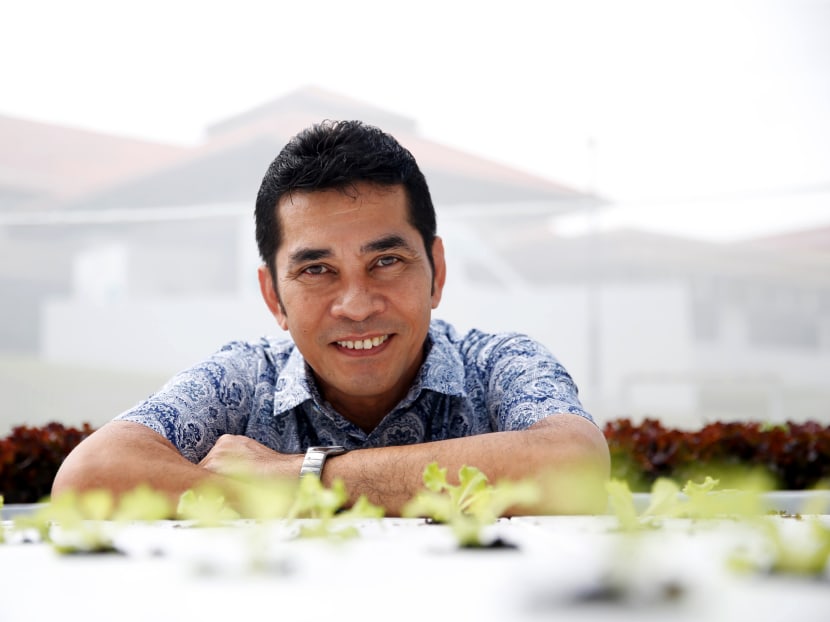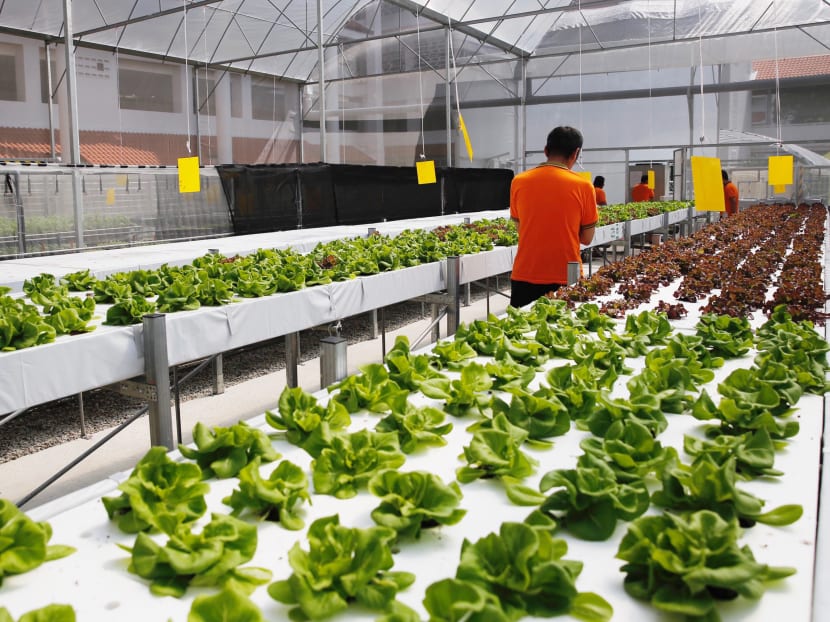Finding their green fingers, IMH patients turn part-time farmers
SINGAPORE — He is a long-time schizophrenia patient who once lived "in his own shell", as he shied away from participating in ward activities at the Institute of Mental Health (IMH).
SINGAPORE — He is a long-time schizophrenia patient who once lived "in his own shell", as he shied away from participating in ward activities at the Institute of Mental Health (IMH).
But things changed for Mr Chua, 69 — who has stayed at IMH for more than 15 years — when he found his green fingers while tending to vegetables at the institute's hydroponics farm.
Dubbed the "foreman" of operations, Mr Chua is responsible for seed sowing, transplanting and grooming, as well as harvesting, packing and selling the produce.
He told TODAY that he keeps his "eagle eyes" on the vegetables, and when he observes something amiss, he sometimes takes the initiative to guide his fellow patients to handle their tasks correctly.
The introduction of hydroponic farming to IMH in 2016 has worked wonders for some patients such as Mr Chua, as he admitted that he was a very different person a year ago.
He is much chirpier these days, as he said simply: "I like the outdoors."
Farming has also helped Mr Andy, a 33-year-old schizophrenia patient who spoke with pride about his role as a seller among the 30-strong group of patients who tend to the farm. He enjoys sharing recipes with his buyers at their vegetable stall, which is located at the main lobby of IMH, he said.
Their harvest of baby spinach, xiao bai chai, chye sim, or different types of lettuce is packed and sold for S$2 per bundle. The revenue raised is used to buy seedlings and nutrients for the farm, and to fund programmes in the ward.
Patients also receive a small allowance for their efforts, which they can use during the weekends when they are allowed time out of IMH.
CULTIVATING GREEN FINGERS
The scheme was hatched by senior nurse clinician Aziz Ab Hamed, who received the Nightingale Award at IMH's Nurses' Day on Friday (Aug 3) for his farming initiative and work at the institute. This is the top award that IMH hands out annually to one exemplary nurse.

In 2016, he asked the management if he could introduce hydroponics farming at IMH as a form of garden therapy after a visit to a farm at Lim Chu Kang.
While a previous soil garden IMH started in 2015 did not prove popular, the hydroponics farm was a hit with patients as the cleaner, easier form of gardening meant that they did not have to use chunky tools or work in the dirt, which gave some of them fungal infections.
They manage the 320 square metre greenhouse systematically, with everyone given tasks according to their abilities, and it is key activity that many of them look forward to daily. The duties range from checking the pH level of the water and nutrient level for the plants, to transplanting each seedling, and pruning the lettuce heads.
Once a patient has learnt how to manage a task, they are rotated to other duties so they get to pick up new skills each season, said Mr Aziz, who added that these are his goals as a nurse in charge of long-stay patients with good rehabilitative potential.
Mr Aziz said that there were initially no funds for the project, but it got going after a donation by Maybank. Their efforts caught the attention of T-Touch, a volunteer initiative driven by staff at Temasek, which pumped in more money last year so they could build a greenhouse with facilities for the rehabilitative programme.
While Mr Aziz did not know anything about hydroponics when he started the project, he learnt the ropes and gained experience after three rounds of harvests. He passed on his knowledge to his colleagues, who then helped guide the patients.
Despite the challenges, he persisted with the hydroponics programme as it gave his patients a sense of satisfaction. He added that studies have also shown that gardening can help improve sleep and mood of those who take part in such activities.
His work at the hydroponics farm is not done, however, as he hopes to set up a sheltered area at the greenhouse for patients to conduct hydroponics workshops for members of the public.
"We will get our guys to teach them transplanting, harvesting, while we get them to buy our vegetables," he said.












